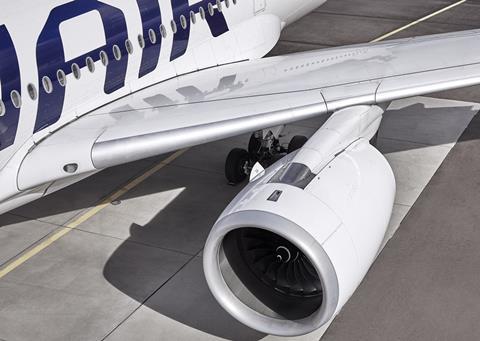Finnair expects average capacity this year will remain 15-20% down on the pre-crisis level of 2019, but is uncertain as to how long the current strong demand for travel will persist.
The airline highlights the high price of fuel and the continuing disruption to its network caused by the Russian airspace closure.
General economic uncertainty, it says, will “weaken the visibility” of travel demand development over the course of this year.
“With the fading impacts of the pandemic following the opening of China, Finnair expects normal seasonality to return,” it states.
Chief executive Topi Manner adds: “We believe that the related travel restrictions will no longer affect our operations on any of the routes we operate after the summer.”
While Finnair is forecasting a significant improvement in revenues this year, given the pressures on last year’s first half, it does not expect the full-year figure to reach pre-crisis levels.

Finnair has turned in a comparable operating loss of nearly €164 million ($175 million) for the full year 2022.
It managed to achieve a comparable operating profit of nearly €18 million for the fourth quarter, the second consecutive quarter in which it has generated positive results.
“This is yet another important step in the right direction,” says Manner. “But the road towards profitability on an annual level is a long one, and full of challenges in the operating environment.”
Finnair points out that the fuel-price situation produced an adverse cost impact of €375 million over the full year, including €94 million in the fourth quarter.
It transported 9.1 million passengers last year, with an average load factor of 67.6%, rising to 72.3% in the final quarter.
Finnair began implementing a revised strategy last year to restore profitability, and aims to reach a comparable earnings margin of 5% at least from mid-2024.
Manner says the market is developing “more positively” than anticipated, but underlines the continuing strong cost inflation.
“We expect the strengthening of unit revenues to play a bigger role than we previously expected in achieving our targets,” he says.


























